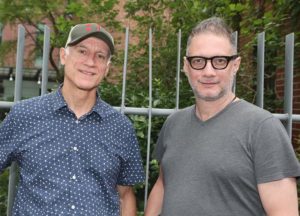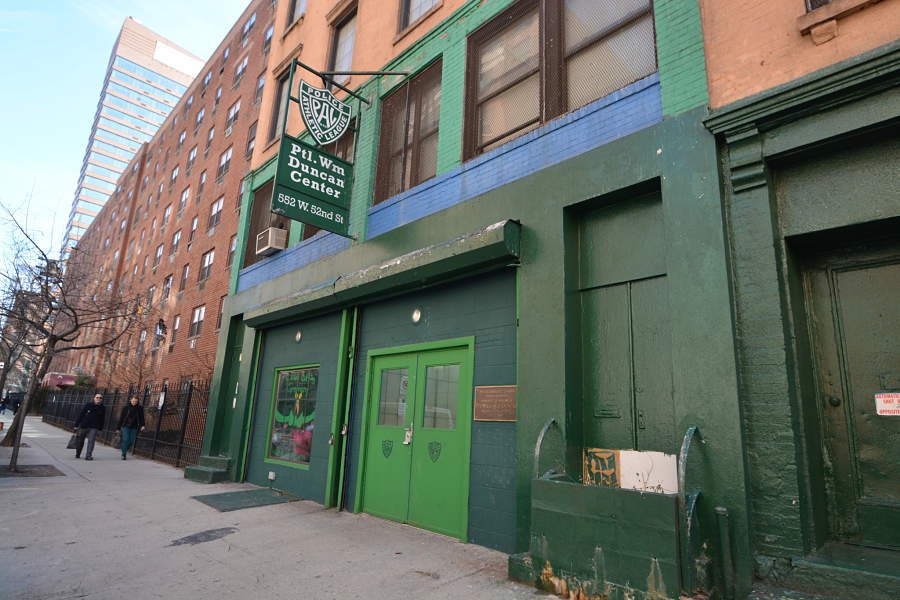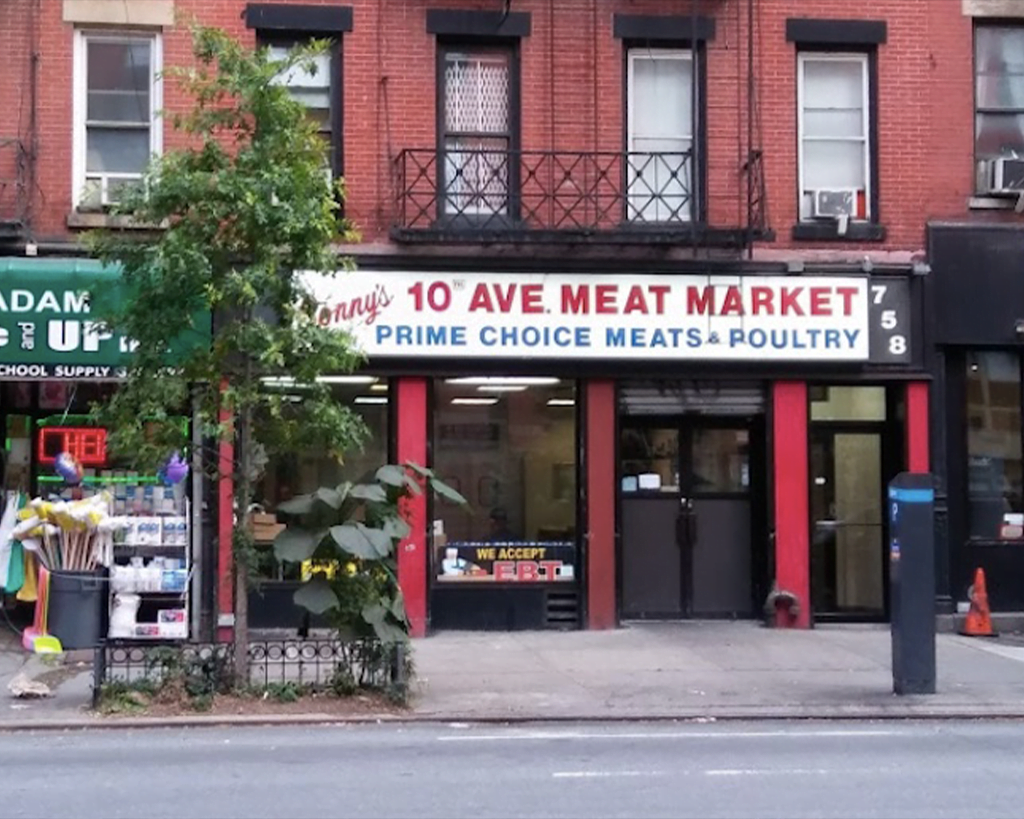I haven’t been to a live play since last November, and even that was a bit of an outlier: an outdoor, socially distanced two-person show, Fannie Lou Hamer: Speak On It, at New Jersey’s Premiere Stages. That single show constituted the entirety of my post-March 2020 theatregoing.
Until now. New York is suddenly on the verge of a virtual binge of live performance, as the city’s limits on public and even indoor gatherings begin to lift, Broadway theatres post opening dates as soon as this month (thanks, Boss), and New York nonprofits and independent producers begin to offer a variety of bespoke productions suited to this moment of reemergence, if not quite full reopening. There was the recent smorgasbord of happenings from En Garde Arts and Downtown Live that I recently wrote about, which intersected with the far-reaching Afrofemononomy project Ayanna Prescod just reported for us. Upcoming is an immersive piece at the Signature Theatre Center, co-created by Lynn Nottage and Miranda Haymon, called The Watering Hole, and a roving installation piece called Seven Deadly Sins from Tectonic Theater Project (based on this Miami New Drama offering from late last year).
I’ll be there for those last two. But first in line on my calendar—my first bona fide theatre date since November, babysitter and dinner reservations and all—is INTAR Theatre’s MicroTEATRO, a sampler of short plays the company commissioned from six playwrights and will stage for small roving audiences in local businesses in INTAR’s upper Hell’s Kitchen neighborhood. INTAR is keeping itself busy; last week the company opened Oso Fabuloso & the Bear Backs, a queer rock musical that plays outdoors in front of a loading dock on 52nd Street, near the theatre’s location, through June 26. MicroTEATRO, which kicks off on June 17, is closer to the kind of site-specific serial staging model we’ve reported on, mostly from Spanish-speaking countries: Spain itself, also Colombia.

On a recent walking tour of the neighborhood with INTAR artistic director Lou Moreno (he/him) and managing director Paul Slee Rodriguez (he/him), Moreno told me he’d seen this kind of work in Mexico and had always wanted to try it at INTAR. “It’s such a great community builder, but it’s really hard and expensive, because you can’t sell a lot of tickets and pay actors a good amount—it was just not affordable for us.” But like many theatre companies shut down by the pandemic, INTAR found that what was once out of the question seemed newly possible, even imperative. “We can’t really produce in our space right now anyway,” Moreno said. “So instead of not doing anything, let’s do something different, let’s get audiences comfortable going to theatre again. Let’s just do weird things in small amounts and get them excited.”
For managing director Rodriguez, the impulse for the project came from an even more basic prompt.
“Our first instinct was, how do we help the restaurant on the block that’s been so good to us? So we just built ideas around that,” Rodriguez said, referring to the wine bar Ardesia on 52nd, which won’t host a micro-play but will serve as the hub for the entire MicroTEATRO event: the place where patrons can pick up tickets and regroup briefly between playlets, and presumably enjoy a drink or a bite. That impulse, though, quickly fanned out to encompass “the businesses that gave birth to INTAR,” said Moreno, gesturing to the building where the theatre’s had a location since its founding in 1966. “We are here because they were here, and vice versa.”
And so we found ourselves inside Sonny’s 10th Ave Meat Market, where the shop’s namesake, 75-year-old Sonel Ramirez, presides from behind a glass booth, and where #Emperorof10thAve, a short play by Carmen Rivera, will play out for audiences of one to four. Has Ramirez ever had theatre done in his shop? I asked. Only film, TV, and commercial shoots, he said. A block away, on 52nd Street, I met Peter Epstein, who with brother Ken runs Epstein’s Paint, where a playlet by Julissa Contreras, also called Epstein’s Paint, will transpire. He likewise told me that film and TV shoots were the only kind of performance that had previously taken place in his store, though his 126-year-old company does a lot of entertainment-related business; things have been picking up lately, he said, with news of Broadway’s reopening.
A few doors down at the Police Athletic League’s William J. Duncan Center, a longtime gathering place for young people in the neighborhood, Foul Shots by Christine Eve Cato will be performed, presumably on the basketball court; around the corner on 10th Avenue, Baby Steps by Caridad Svich will take place in the offices of the Housing Conservation Coordinators, a nonprofit organization offering legal help, advocacy, and other practical services to the community. In the box office of the youth theatre company 52nd Street Project—another local pillar of what is shaping up to be one of the city’s most promising theatre districts—audiences will witness Unfinished Stories by Mariana Carreño. Rounding out the half-dozen offerings is LeNOBLE by C. Quintana (CQ), staged at the former site of LeNoble Lumber Co. on 52nd.

This neighborhood, called “Clinton” on city maps and roughly poised between Broadway and Lincoln Center, has seen a lot of change since INTAR put down roots here (the company also once had a location on 42nd Street), and particularly in the last decade. Asked to characterize the neighborhood and the changes it’s undergone, Moreno and Rodriguez gave a multitude of answers reflecting the area’s confounding multiplicity.
“Socioeconomically, you’ve got public housing and then you’ve got luxury housing right next door,” said Moreno. Rodriguez mentioned high-rise developments on 53rd Street that were retaining a large amount of affordable housing within them; Clinton Housing Development Company, a nonprofit, manages many of the properties in the area, including the building housing INTAR’s theatre.
The biggest development in Clinton, though, is one I alluded to earlier, and which struck me powerfully on my walking tour. INTAR and other longtime performance spaces Ars Nova, Ailey Studios, the 52nd Street Project, and Ensemble Studio Theatre have been joined in recent years by ART/NY and MCC Theatre, and in December a newly expanded Irish Arts Center will open on 11th Avenue (it’s absolutely stunning, based on a recent tour I was given). As the post-lockdown reopening takes shape, this neighborhood seems poised to become a bona fide Manhattan theatre district, distinct from its nearby counterparts. Along with this surge in cultural activity has come the usual uptick in restaurants and retail; the trick, both INTAR leaders acknowledged, is “preserving the affordability of it,” as Rodriguez put it. Said Moreno, “It’s potentially a very successful gentrification story, as opposed to, say, Soho. What makes gentrification work is when new businesses try to keep the neighborhood with them, and not just feed off of it.”

Cultural institutions are a natural fulcrum for this kind of change, as they are loss-leading businesses that can spur demonstrable gains in local spending and investment. It can be a precarious balancing act, as these arts orgs are typically not rich themselves, but they often attract upscale patrons, whose presence can alter the character of the environment around them, often to the detriment of current residents, including small arts organizations themselves.
But I’ve always found theatregoing in particular to be a human-scaled activity that not coincidentally thrives in walking cities. And the neighborhoods where venues are situated are as much a part of the experience, and the draw, for me as the plays themselves. When theatre districts add amenities that aren’t too pricey, so much the better; but when all they have to offer is secure parking, and the only food and drink in the vicinity is a theatre’s over-priced concessions, that’s a kind of civic blight, as far I’m concerned. Among other things, INTAR’s MicroTEATRO is a celebration of that locality and specificity—a fresh watering of the long-planted roots they share with Sonny’s Meat Market, Epstein’s Paint, the Police Athletic League, and more. And while they welcome new business and traffic to the area, including mine, they are adamant about holding their place in a changing landscape.
As Ardesia owner Mandy Oser told me of her wine bar’s opening there in 2009, “People thought we were crazy to be here. But I think we knew that there was a lot coming, and we just loved the neighborhood. We just got a good vibe.”
I can and will drink to that.
Rob Weinert-Kendt (he/him) is editor-in-chief of American Theatre. rwkendt@tcg.org
it may interest you:
- THE HANGOVER REPORT – Whether you like it or not, the sensational new rock musical OSO FABULOSO & THE BEAR BACKS! may just be the next “Hedwig”
- INTAR Theater Takes To The Streets
- Intar’s MicroTEATRO Festival. Turning Hell’s Kitchen Into a Reimagined Theater Wonderland
- Hell’s Kitchen Businesses Take Center Stage in INTAR’S MicroTEATRO Festival
- Review: Oso Fabuloso & the Bear Backs! Reclaims New York’s Rock and Roll Spirit
Source: Americantheatre info

